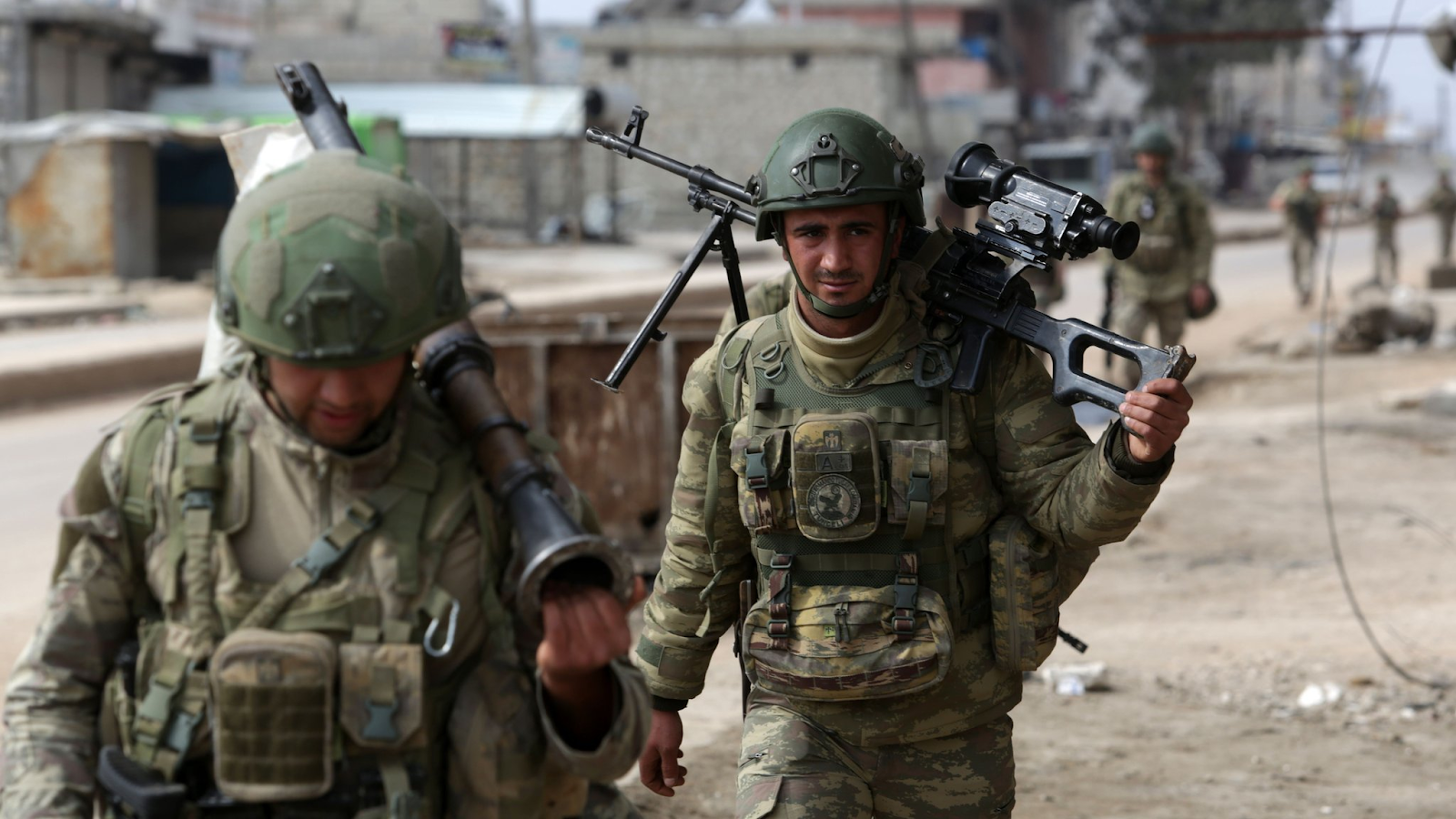Time For Turkish Troops To Leave Syria?
As long as Turkish troops are stationed in Syria's north, Syrian Foreign Minister Faisal Mekdad insists that normalization with Turkey will not take place.
As a condition for resuming relations, the Syrian regime has consistently demanded the withdrawal of Turkish troops. Mevlüt Avuşolu, Turkey's foreign minister, responds by asserting that if Turkey withdraws, terrorist organizations will step in to fill the gap left by the Turkish army in northern Syria. The main objectives of the Turkish army's presence in Syrian territory since 2016—along with their local proxy, the Syrian National Army (SNA)—have been to combat the YPG terrorists, a branch of the PKK operating in Syria, and to stop new migrant inflows. The prevention of future migrant influxes is another justification.
In Syria, analysts agree that Bashar Assad's regime does not want to retake the northern part of the country because it would be economically and socially burdensome for Damascus, not to mention the security problems and political turmoil that would result. The regime is simply trying to raise the stakes in negotiations with Turkey. The regime is simply attempting to raise the stakes in negotiations with Turkey. The timing is also advantageous for Syria, which has recently been re-admitted to the Arab League, a development that encourages the regime to speak out more strongly against Ankara. Otherwise, if the Turkish government accepts withdrawal, the regime will panic.
Despite compelling reasons for Turkey and the regime's ostentation, there is still a perception in Syria that Turkey is the occupier. On the other hand, the facts are pretty different. The fact that Turkey does not want to keep troops in Syria is easily demonstrated. For starters, being in Syria has no economic, political, or other benefits. On the contrary, the Turkish army's presence is costly, and the Turkish government would be relieved if it could withdraw its troops from Syria.
Second, President Recep Tayyip Erdogan has significantly suffered politically as a result of opening borders to Syrian migrants and not returning them to Assad's persecution. He repeatedly stated that his government will not force migrants to return unless their safety is guaranteed.
He lost supporters as a result of his quiet moral stance. Even a few days before the elections on May 14, he stated that his government will not return Syrians until the conditions are met. What did Erdogan stand to gain from this destructive policy? Nothing else but humanity.
Syrian refugees in Turkey
Third, about 3.5 million Syrians have emigrated to Turkey to flee the oppression of the Assad regime. With 15% of Syria's population, Turkey has more people than at least six small Arab states, out of a total of 22. Turkey has a legitimate interest in Syria given the size of its population there.
Furthermore, the Turkish military presence is not a response to the current influx of Syrian migrants in Turkey, but rather a preventative measure to prevent an influx of 3 million-4 million more migrants. More migrants will cross the border if the Turkish army withdraws, and current migrants are unlikely to return if they do.
As a result, even though Turkey has troops in Syria, one could argue that the country is still in a defensive position. Adding to the migrant problem, the YPG will almost certainly try, with the help of its Western allies, to occupy areas vacated by the Turkish army.
In such circumstances, it is unfortunate that the Arab League, which also accuses Turkey of occupying Syrian territory, reinstated Syrian regime membership while taking no action against the Syrian people. A failed state like Syria will undoubtedly be a headache for the league unless it intervenes, if only for humanitarian reasons. Perhaps Turkey is doing what Arab states should have done for Syrians and thus deserves praise rather than criticism.
Until the regime (or outside actors) offers security for migrants, Turkey is less likely to leave Syria, according to future projections. Additionally, what Russia says will be more significant in Turkish-Syrian relations than what the regime says.
The regime does not have an advantage over the Turkish government due to good Turkish-Russian relations and Russia's mediation role. As a result, what regime officials say is only meaningful if it is supported by Moscow.


Comments
Post a Comment